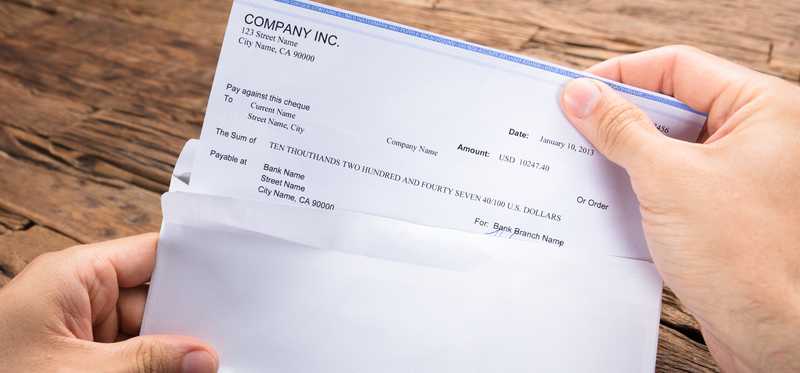20 Social Security Facts to Help You Plan for Retirement

20 Social Security Facts to Help You Plan for Retirement
Social Security will help fund your retirement -- but you need to understand how it works
Social Security benefits are a vital source of income for seniors across America, but the program's confusing rules and complex formulas leave many pre-retirees and even current retirees unsure how to maximize the money they receive.
Whether you're close to claiming benefits or decades away from retirement, it's important you know the facts about your Social Security retirement income.
Here are 20 things you need to be aware of that will help you understand how Social Security should fit into your retirement plans.
5 Winning Stocks Under $49
We hear it over and over from investors, “I wish I had bought Amazon or Netflix when they were first recommended by the Motley Fool. I’d be sitting on a gold mine!” And it’s true. And while Amazon and Netflix have had a good run, we think these 5 other stocks are screaming buys. And you can buy them now for less than $49 a share! Simply click here to learn how to get your copy of “5 Growth Stocks Under $49” for FREE for a limited time only.
Previous
Next

1. Social Security is designed to replace 40% of pre-retirement income
Most experts recommend that you replace at least 70% of your pre-retirement income in retirement, but you should aim higher since there's a good chance you'll spend more than that.
Social Security retirement benefits, however, are only designed to replace 40% of pre-retirement income. That's not a glitch -- it's because they're meant to be just one of several sources of funds you use to pay retirement expenses.
If you don't realize these benefits pay so little, you could find yourself in dire financial trouble when it comes time to retire. Don't make that mistake -- save enough to supplement your benefits.
Previous
Next

2. The average Social Security benefit in 2020 is just $1,503 per month
Since Social Security benefits aren't meant to be your sole source of retirement income, the amount of money you receive each month is likely to be much smaller than you're expecting.
In fact, in 2020, the average monthly benefit is just $1,503 per month. That will give you an income of $18,036 annually, which isn't very far above the federal poverty line.
The low monthly benefit just underscores how much additional money you need to save if you want to be financially comfortable as a retiree.
Previous
Next

3. Social Security benefits are losing buying power
There's some more bad news for those counting on Social Security to be a key source of retirement funds: The value of your benefits is eroding.
In fact, according to recent studies, benefits have lost around 30% of their buying power over the past 20 years. Unless big changes occur in the future, which isn't very likely in today's political climate, the amount Social Security can buy you is likely to keep declining.
This not only means future retirees may need more savings to supplement their benefits, but it also puts current retirees in jeopardy. Since inflation is eating away at their benefits, they could end up with far too little income in their later years, especially if their investment account balance is dwindling.
Previous
Next

4. Social Security benefits are based on your average wages over 35 years
The amount you'll receive in Social Security is based on what you've earned (and paid Social Security taxes on) throughout your life.
Your benefits will equal a specific percentage of your Average Indexed Monthly Earnings, or AIME. While this sounds complicated, it just means you get a percent of your average wages over your career.
It's not your whole career that counts, though -- just the 35 years in which your earnings were highest (after they've been adjusted for inflation).
The Social Security Administration always uses 35 years to decide your average, so if you work less than that time, zeros will be factored in. And if you work longer when you're earning more at the end of your career some higher earning years will replace lower ones in the calculation.
Previous
Next

5. You'll get your standard Social Security benefit amount if you claim your benefits at full retirement age
The Social Security benefit determined using your average wages is called your Primary Insurance Amount -- but you may not get that amount of money.
In fact, you'll only get your PIA if you claim at a specific age designated by law as your full retirement age. Sixty-five was traditionally the full retirement age for everyone, so anyone who retired then would get their standard benefit.
However, things changed in 1983 and now your full retirement age is determined based on when you were born. It's later than 65 for everyone retiring today or in the future, though: It's now between 66 and 67.
5 Winning Stocks Under $49
We hear it over and over from investors, “I wish I had bought Amazon or Netflix when they were first recommended by the Motley Fool. I’d be sitting on a gold mine!” And it’s true. And while Amazon and Netflix have had a good run, we think these 5 other stocks are screaming buys. And you can buy them now for less than $49 a share! Simply click here to learn how to get your copy of “5 Growth Stocks Under $49” for FREE for a limited time only.
Previous
Next

6. You can claim Social Security as early as 62
Although Social Security designates an age between 66 and 67 as your full retirement age (FRA), you don't actually have to wait that long to claim your benefits.
In fact, you can start receiving Social Security retirement benefits as early as 62 -- and can get survivor benefits even before that.
Previous
Next

7. If you claim benefits before full retirement age, you could face a cut to monthly income of as much as 30%
Claiming benefits before FRA may sound attractive so you can get retirement income from Social Security as soon as possible, but making this decision comes at a price.
Each month you start your benefits ahead of your FRA will result in an early filing penalty. For the first 36 months, these reduce your benefits by 5/9 of 1% and for any additional month before then, they'll reduce your benefits by an additional 5/12 of 1%.
For someone who claims retirement benefits at 62 with a full retirement age of 67, these early retirement credits add up to as much as a 30% reduction in benefits. But even claiming a year early can make a big impact, with benefits going down by 6.7% for the first three years and an additional 5% annually for any prior years.
ALSO READ: How Much Does Filing Early Cut My Social Security Benefits?
Previous
Next

9. Social Security is designed so you'll theoretically get the same lifetime benefits no matter when you start claiming them
Social Security gives delayed retirement credits and imposes early filing penalties for a simple reason: To try to ensure people get the same lifetime income no matter when they start benefits.
Because the SSA designed the program so benefits equalize for those who live the average lifespan, it theoretically shouldn't matter when you actually start your benefits. You'll either get more checks from the SSA but not get as much money in each one, or will get fewer checks but each will be larger.
Of course, not everyone lives to their average lifespan as projected by actuaries. And if you don't, your decision about when you claim benefits could have a big impact on the lifetime income you receive.
5 Winning Stocks Under $49
We hear it over and over from investors, “I wish I had bought Amazon or Netflix when they were first recommended by the Motley Fool. I’d be sitting on a gold mine!” And it’s true. And while Amazon and Netflix have had a good run, we think these 5 other stocks are screaming buys. And you can buy them now for less than $49 a share! Simply click here to learn how to get your copy of “5 Growth Stocks Under $49” for FREE for a limited time only.
Previous
Next

10. Many experts recommend waiting to claim benefits until 70
Social Security benefits have two big advantages: They'll last for life, and they're somewhat protected against inflation (although, as mentioned above, this protection doesn't work that well).
Because these benefits provide a guaranteed source of income that won't ever run out, many experts recommend maximizing the size of your benefit checks. To do that, you'd need to wait until 70 to start them.
Previous
Next

11. The most popular age to claim Social Security is 62
It's advisable to wait until 70 to claim benefits if you can -- but not everyone can pull that off. In fact, the most popular age to claim benefits is actually the earliest they're available: 62.
Sadly, that's usually not because people are just eager to get to retirement. Instead, many people who start their retirement benefits at 62 do so out of financial necessity when they become unable to work and need the income.
If you don't want to be forced to claim benefits and experience a reduction in the amount you receive, you'll need to make plans to support yourself in early retirement if you have to leave the workforce in your early 60s.
If you can't do that, you need to be prepared for the fact your Social Security checks may be smaller than you're anticipating. You may need more supplementary savings or may have to scale down your expectations in terms of quality of life as a retiree.
Previous
Next

12. You can undo an early claim for Social Security benefits within the first year -- but it will cost you
If you've filed for benefits early and regret doing so, you have one do-over. You can rescind your claim within the first 12 months of making it and it will be as if it never happened.
There's a catch though -- you have to pay back all the money you received. That can mean sending a lot of money to the Social Security Administration. It may be worth doing if you regret reducing your benefits by filing early, but not everyone can afford to make that choice.
ALSO READ: Oops -- You Claimed Your Social Security Benefits Too Early. What Now?
Previous
Next

13. Working while on Social Security can reduce your benefit if you're under full retirement age
If you haven't yet hit your full retirement age and you want to work, you need to be aware that doing so could reduce the Social Security benefits you receive.
You're allowed to earn some money from a job without it affecting your benefits. However, if you won't reach FRA at all during the year, you'll lose $1 out of every $2 in benefits once your income exceeds $18,240 in 2020. If you'll hit FRA in the year you'll be working, you'll lose $1 out of every $3 in benefits once your income goes above $48,600.
This can be disappointing if you were counting on getting your benefits and a paycheck. But you can also use this to your advantage if you claimed benefits early and regret it. If you earn enough, you'll end up getting no benefits. You'll get credit for that when you hit full retirement age and the Social Security Administration recalculates your monthly benefit amount.
Previous
Next

14. Some of your benefits could become taxable if you have a higher income
As many as 50% of retirees lose at least some part of their Social Security benefits to federal taxes. There are also some states that tax benefits as well.
The reason only some retirees face taxes on their benefits is because they don't kick in until your countable income exceeds a certain limit. Countable income equals half the amount of your Social Security benefits, plus all other taxable income and some non-taxable income as well.
Once your countable income hits $25,000 (if you're a single tax filer) or $32,000 (for joint filers) up to 50% of your Social Security income could be taxed. And with an income above $34,000 for single filers or $44,000 for joint filers, you're looking at owing the IRS taxes on up to 85% of benefits.
You can't forget the impact of taxes on your take-home pay -- and you may want to consider investing in a Roth IRA to lessen it.
5 Winning Stocks Under $49
We hear it over and over from investors, “I wish I had bought Amazon or Netflix when they were first recommended by the Motley Fool. I’d be sitting on a gold mine!” And it’s true. And while Amazon and Netflix have had a good run, we think these 5 other stocks are screaming buys. And you can buy them now for less than $49 a share! Simply click here to learn how to get your copy of “5 Growth Stocks Under $49” for FREE for a limited time only.
Previous
Next

15. You may be able to claim benefits on a spouse's work record
If you don't have a long work history of your own or if your spouse earned more than you, you can sometimes get a higher benefit by claiming based on your spouse's work record rather than your own.
There is a catch, though -- your spouse must have claimed his or her benefits first before your spousal benefits can start.
Previous
Next

16. Spousal and survivor benefits may be available even after a divorce
If you were married for at least a decade, you should be entitled to get spousal benefits based on your ex's work record even if you're divorced (as long as you haven't remarried).
You can also get survivor benefits from your ex after a marriage lasting at least 10 years. The big difference is, these can be available after you've remarried, but only if you're older than 60 when you say "I do" to your new spouse.
Previous
Next

17. Claiming Social Security benefits early can reduce survivor benefits
It's not just your own benefits that could end up shrinking if you claim them early. If you start your benefits ahead of full-retirement age, that can shrink the survivor benefit you leave to your spouse.
If you were the high earner, that can be a big problem as a spouse's death is a major financial shock that leaves many widows and widowers coping with serious money worries.
ALSO READ: Everything You Need to Know About Social Security Survivors Benefits
Previous
Next

18. Social Security benefits come with periodic cost-of-living adjustments
Although Social Security benefits have lost buying power, they are somewhat protected against inflation. This protection comes in the form of periodic cost-of-living adjustments (COLAs).
COLAs happen when a price index -- specifically the Consumer Price Index for Urban Wage Earners and Clerical Workers -- shows that costs have gone up.
Raises don't happen every year, sometimes they're small ones, and the pricing index isn't really the best measure of rising costs for retirees. But at least your benefits don't just remain the same throughout retirement.
Previous
Next

19. Medicare premiums are usually paid out of Social Security benefits
In most cases, Medicare Part B premiums are deducted from Social Security payments. That means your monthly take-home pay may be a little smaller than you anticipated.
It also means that if Medicare costs go up, the rising premiums may eat away at any raise you get (although you are protected from having your benefits lowered if premiums rise more than your annual cost-of-living adjustment).
5 Winning Stocks Under $49
We hear it over and over from investors, “I wish I had bought Amazon or Netflix when they were first recommended by the Motley Fool. I’d be sitting on a gold mine!” And it’s true. And while Amazon and Netflix have had a good run, we think these 5 other stocks are screaming buys. And you can buy them now for less than $49 a share! Simply click here to learn how to get your copy of “5 Growth Stocks Under $49” for FREE for a limited time only.
Previous
Next

20. Social Security is in financial trouble -- but can't go broke
Social Security has a trust fund to support it, but that fund is expected to run dry in 2035. Many people think this means Social Security will be broke then. It won't, because tax revenue will continue to support it.
Unfortunately, income from payroll taxes and taxes on high earners provides enough money only to pay out around 76% of promised benefits. So while Social Security will still be there for you, retirees in the future could face a 24% cut to benefits if lawmakers don't act to stop it.
Previous
Next

Make a smart choice about your Social Security benefits
As you can see, there's a lot to know about your benefits. The bottom line is, decisions you make -- such as when you stop working -- can affect your income. But some things are out of your control, including whether the program runs out of money or whether you're forced to retire and claim benefits before you're ready.
Because of that, it's best to assume you'll get the minimum benefit from Social Security even if you plan to work longer to max yours out.
If you base your retirement goals around that but then are able to work longer into your 60s, you'll be in a much better position than if you set your savings targets too low because you plan to rely more on Social Security than you should.
The Motley Fool has a disclosure policy.
Previous
Next
Invest Smarter with The Motley Fool
Join Over Half a Million Premium Members Receiving…
- New Stock Picks Each Month
- Detailed Analysis of Companies
- Model Portfolios
- Live Streaming During Market Hours
- And Much More
READ MORE
HOW THE MOTLEY FOOL CAN HELP YOU
-
Premium Investing Guidance
Market beating stocks from our award-winning service
-
The Daily Upside Newsletter
Investment news and high-quality insights delivered straight to your inbox
-
Get Started Investing
You can do it. Successful investing in just a few steps
-
Win at Retirement
Secrets and strategies for the post-work life you want.
-
Find a Broker
Find the right brokerage account for you.
-
Listen to our Podcasts
Hear our experts take on stocks, the market, and how to invest.
Premium Investing Services
Invest better with The Motley Fool. Get stock recommendations, portfolio guidance, and more from The Motley Fool's premium services.